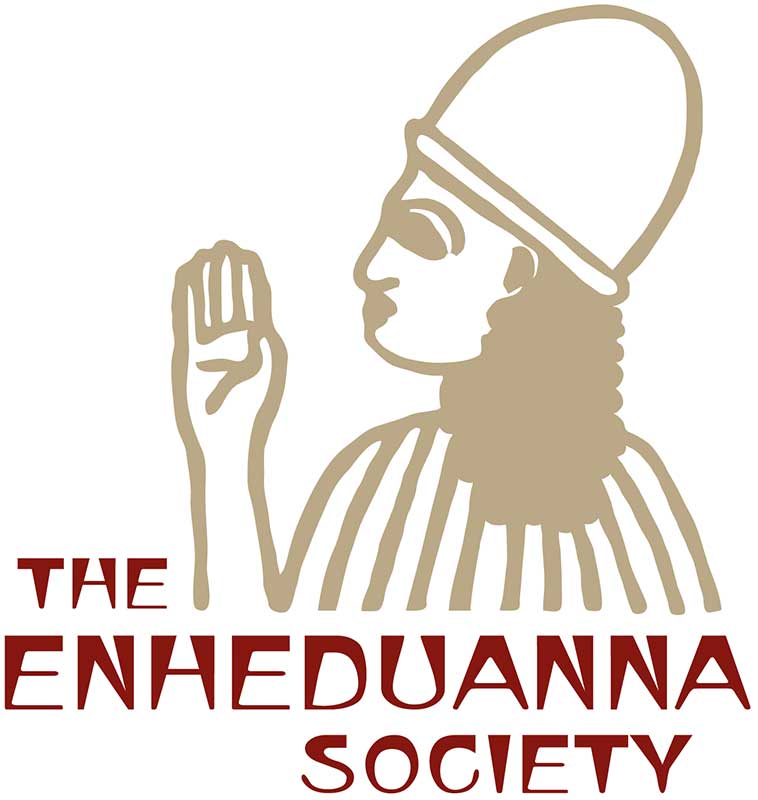English translation of video
00:41
We hear a lot about Gilgamesh. But who is Gilgamesh? Is he a mythical character, or a real person who became the subject of legends?
One of the most famous Mesopotamian myths is the story of Gilgamesh. In the south of Iraq, scholars and archeologists have discovered hardened clay tablets that narrate the story of an immortal and mythical hero named Gilgamesh. This story is one of the oldest historical works known to humankind. It was written several times, in many cities, at various times and in different ways (though always in cuneiform script). The two most famous versions of Gilgamesh are the Sumerian version and the Assyrian one, found in Nineveh.
1:58
The multitude of copies and narratives have made it possible to “fill in” the gaps and deficiencies afflicting each individual copy and each tablet. At the same time, this multitude, as well as the differences between the methods and times of writing, caused some discrepancies between the different versions of the legend. The name Gilgamesh, for example, was written once “Gilgamesh”, once “Jilgamesh” and once “Gilgamush.” In any case, it is a strange and unique name. We do not know if it is the name or surname of this person, and we do not know its meaning for sure. Different meanings come with the name’s different spellings, such as “the heart of the flying bull” or “the Heavenly Ox”, among others.
2:54
The myth states that Gilgamesh was born in the city of Uruk. The Babylonian, Sumerian and Akkadian versions of the Epic of Gilgamesh mention several similar names for the parents of this legendary hero. On the other hand, the Assyrian versions describe him as half-human and half-divine, with the human half motivating his obsession with immortality.
3:28
Let’s listen to this legendary literary text describing the birth of Gilgamesh.
4:00
In ancient times, a governor of the city of Uruk, known as king Damu, asked a magician of the city to tell him his fortune so that he would know his successor. The magician told the king that the stars said his son would succeed him, but the sun said that his grandson will rob him of the kingdom and become an immortal hero. Damu was never able to forget what the magician told him. When he had to hand over the throne to his son, he warned him, saying: “Watch out for my grandchildren, for one of them will become an immortal hero and will put an end to our king”. When the king had a newborn son, his grandfather Damu ordered to have the baby left outside in the open to die from cold, wind and rain. When the baby was left outside, an eagle came to him, carried him with its claws and took him to its nest. The child grew up on the slopes of the mountains, becoming great in stature and powerful. He went to Uruk as a mighty one, eleven cubits (seventeen feet) tall and four cubits wide from nipple to nipple. His body was radiating energy and vitality like the sun.
5.03
He took power from his grandfather and became a governor of Uruk. He was a tyrannical leader, forcing his people to build a wall around the city. Many events have been attributed to the story and reign of Gilgamesh, some of which happened before or after his time. Some of these stories describe him as a ruler, and others as a traveller who travels to the headwaters of the Tigris River to enter the “garden” – eternal paradise. Still other stories give him supernatural qualities.
5:42
This is a poem that attributes supernatural qualities to Gilgamesh:
You, who saw everything in this world
You, who rode all mountains and valleys
You, who overcame his enemies with his friend
You, who attained wisdom and reached everywhere
You, who revealed secrets and saw hidden ones
You, who told us about the days before the flood
You, who rode valleys and rivers and traveled far away until his story was written in stone
6:17
On the other hand, some stories mention Gilgamesh’s weakness, as he was afraid of illness, of losing his strength, of aging and of death. He went to the springs of the Tigris just to find a cure that would give him immortality, a cure of those who lived through the Great Flood and survived it. For that, he crossed the country of darkness (land of the Scorpion People), eventually reaching heaven, or the garden of immortality. Having reached it, he was not satisfied with the conditions of immortality and gradually understood and surrendered to the idea that there is no immortality in life. We need things other than power; we need wisdom and reason.


